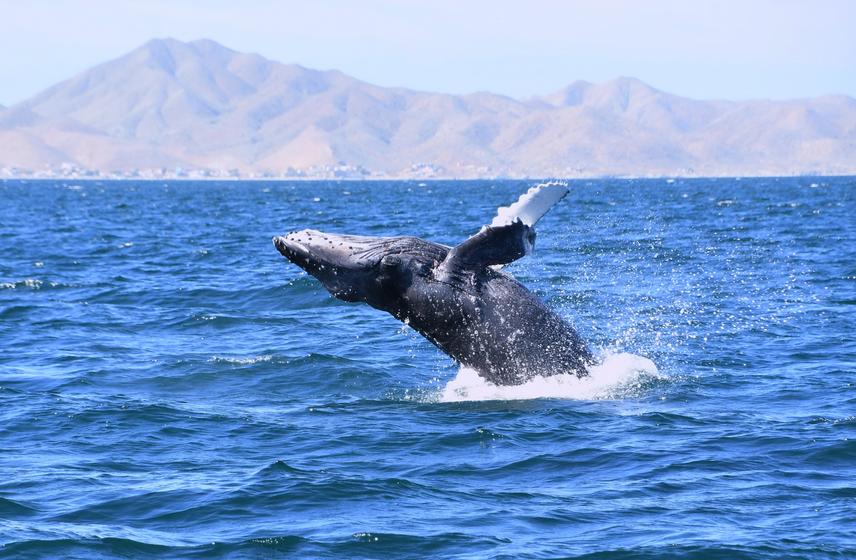Omar García-Castañeda
Other projects
4 Sep 2017
Characterization of the Habitat of Cetaceans in the Puerto Peñasco-Puerto Lobos Biological-Fishing Corridor
17 Nov 2021
Development of a Proposal to Guide the Sustainability of the Whale Watching Industry in Baja California Sur, Mexico
This project focuses on conserving the Gulf of Tehuantepec, a vital marine biodiversity hotspot in southeastern Mexico. The region faces significant ecological threats from the Isthmus of Tehuantepec Interoceanic Corridor (CIIT). This mega project aims to rival the Panama Canal by connecting the Pacific and Atlantic Oceans for international trade. The increased maritime traffic and habitat disruption threaten cetaceans, particularly the humpback whale populations, which serve as umbrella and sentinel species for ecosystem health.

Humpback whale calf jumping. © Omar Garcia/PRIMMA-UABCS.
The project’s primary objective is to promote sustainable tourism as a conservation and economic strategy while safeguarding critical habitats for humpback whales and other cetaceans. It aims to generate new knowledge about these species through citizen science and participatory mapping. Engaging local fishing communities, who face economic vulnerability due to the CIIT, is central to the project. Community members will contribute their knowledge to the identification of whale aggregation areas, the design of navigation routes, and the development of whale-watching activities.
By conducting systematic cetacean monitoring and oceanographic analyses, the project will assess the impacts of climate change on species distribution and propose adaptive conservation strategies. This includes creating sustainable whale-watching tourism guidelines aligned with Mexican regulations, evaluating the economic potential of these activities, and fostering a sense of environmental stewardship among community members.
The expected outcomes include a photographic catalogue of cetaceans, ecological niche models, sustainable navigation guidelines, and a framework for whale-watching tourism. The project will also empower communities by training participants in monitoring techniques, sustainable tourism practices, and conservation principles, ensuring long-term benefits.
Ultimately, this initiative integrates transdisciplinary approaches to address ecological, social, and economic challenges in the Gulf of Tehuantepec. Combining scientific research with local knowledge will advance marine conservation and provide sustainable economic alternatives for vulnerable communities, demonstrating the potential of community-driven conservation efforts.
Header image: Pod of common dolphins. © OmarGarcia/PRIMMA-UABCS.